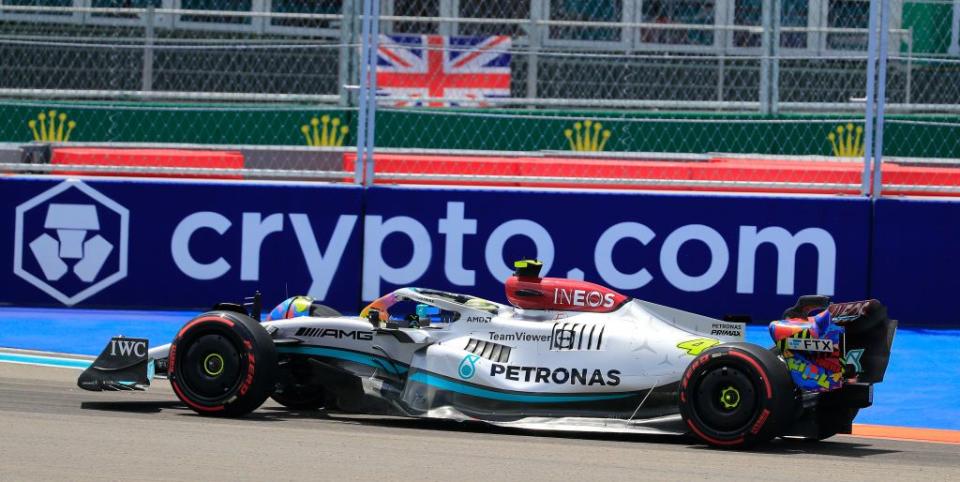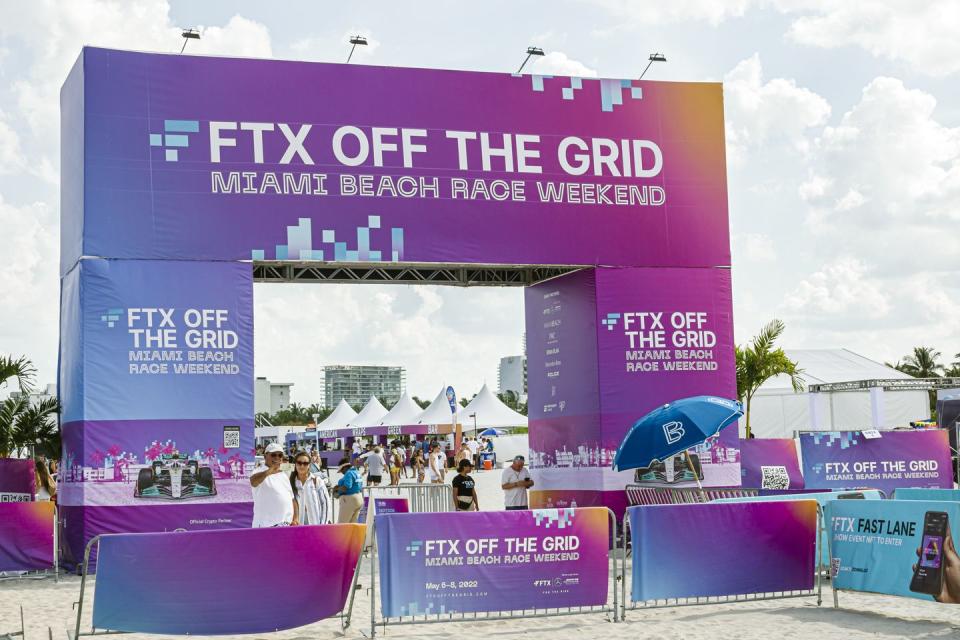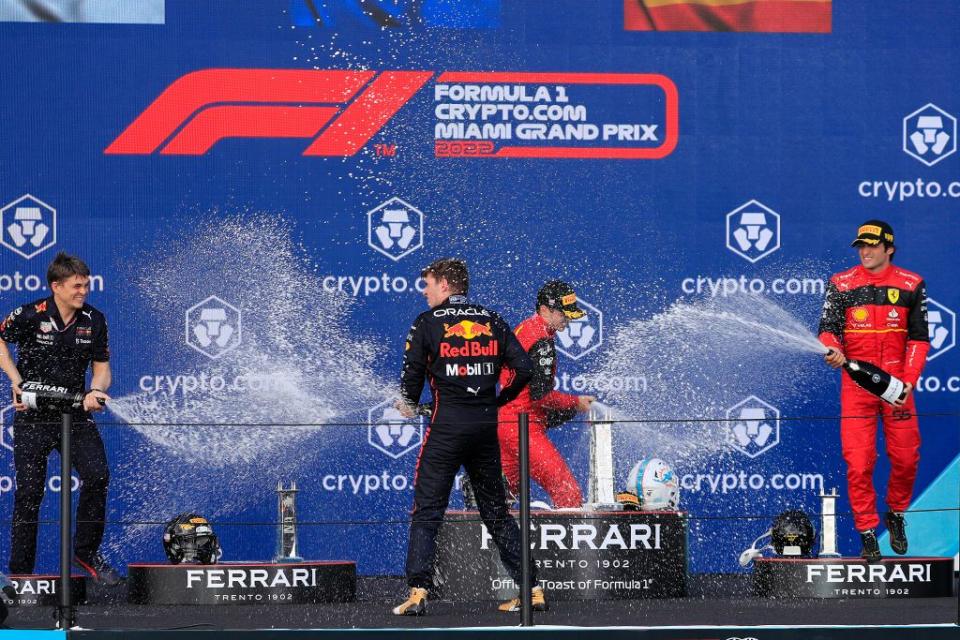Formula 1's Crypto Sponsorships Are Crashing

Over the past few years, cryptocurrency sponsorship has poured into Formula 1 at an astonishing rate. Nine of ten teams have some sort of crypto deal, with preseason holdout Haas finally joining that list with an NFT agreement just last week. The deals have taken many forms, from simple sponsorship deals with cryptocurrency exchanges to complicated tie-ups that actually create currency somehow tied to the idea of being a fan of Alfa Romeo F1. There are so many crypto deals out there that it can be tough to keep up, which is good, because if you kept up with all of them and invested your money in each F1 cryptocurrency individually the day the deals were announced, you would have lost most of that money by now.
Crypto sponsors are everywhere in F1 nowadays
But let's look at some results from the past year. pic.twitter.com/DjXjz3w29w— FN (@FormulaNetflix) November 10, 2022
That particular data point comes from Twitter user Formula Netflix, who checked the prices of seven crypto investments tied to F1 sponsorship deals on the day they were announced and calculated how much money an investor would have lost if they had invested then. Each property they list has been a significant money loser since these deals began, headlined by a catastrophic collapse from major Mercedes sponsor FTX.

That particular deal was signed just last September. The token tied to FTX, called FTT, is not traded on any traditional stock exchange, but a single unit of a cryptocurrency that represents an investment in the company was worth around $50 at the time. Now, after a sudden collapse and a failed acquisition deal with fellow F1 team sponsor Binance, the coin has spent the day fluctuating between $2 and $4. If FTX ends up insolvent, a very real chance given that the company's celebrity CEO has spent the day apologizing for a financial catastrophe in a Twitter thread, Mercedes AMG F1 would potentially lose what Business F1 estimated to be a $27 million sponsorship deal. That's still on hold, though; Sports Business Journal's Adam Stern reports the cars will race with FTX logos this weekend as usual.
What should be alarming for F1 teams is that FTX was among the most notable names on the grid, with a huge footprint in the industry and a massive marketing spend that went well beyond the confines of auto racing. Ferrari's crypto partner, Velas, may be most notable outside the world of cryptocurrency for having a partnership with Ferrari. The Swiss company proudly boasts the partnership (estimated at $20 million a year, per Business F1) in all of its social media bios. Velas is a blockchain technology, rather than a cryptocurrency exchange like FTX, but we can track Velas's value through the value of a token, called VLX, tied to it in the same way. When Ferrari announced a deal with Velas on December 27th of last year, VLX was worth $0.39 per token. That quickly ballooned up to an all-time high of $0.55 on January 4th; now, the coin has spent the day floating around $0.03.

Teams are not the only parts of the F1 ecosystem impacted by the volatility of the cryptocurrency market, though. Formula 1 itself has a partnership with Crypto.com, an exchange that has made waves with massive investments across the sports world. Their deal with F1 is worth $100 million over five years, announced in June of 2021. At the time, Crypto.com's "Cronos" token was worth $0.11. It's worth a reasonable $0.09 now, but only after spiking to an exponential high of $0.89 and collapsing back down.
Each and every one of these tokens could suddenly explode in value overnight. Even FTX, a company so seemingly doomed that the CEO tweeted in all caps that he did not mean what he said "in a technical or legal sense" earlier in his own Twitter thread, could still somehow rebound and fulfill its contract with Mercedes AMG F1. However, each and every one of these deals is an exposure to risk for teams in a series all too used to risk. Like deals with the would-be Red Bull fighter Rich Energy or the stock market predicting Moneytron before it, a crypto sponsorship runs the chance of simply disappearing in the middle of a long, expensive commitment that provides a team with the money it needs to actually operate and compete.
Worse, these sorts of deals erode the trust between F1 teams and their fans, diluting the value of any racing sponsorship even as audience sizes explode. After all, if the top team in the entire sport is trying to sell us on a crypto exchange whose CEO is currently blaming its impending insolvency in part on "poor internal labeling," why should we trust them to partner with high quality oil or tire companies?
You Might Also Like

 Yahoo Autos
Yahoo Autos 